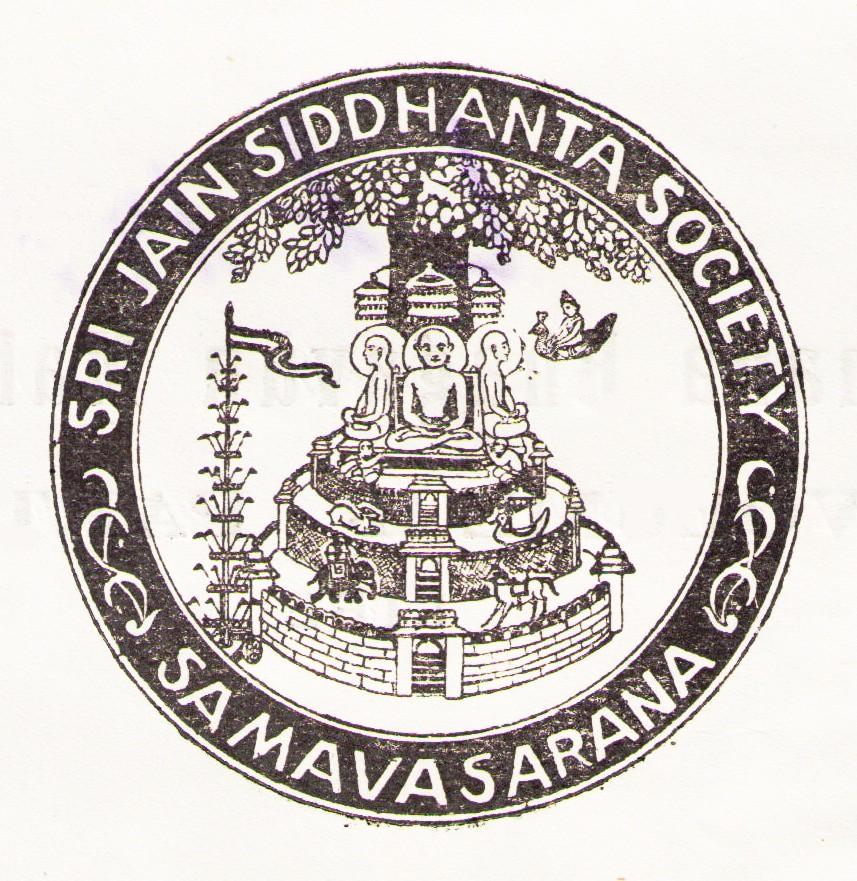
Comparative Antiquity of Jainism (1934) [1]
I propose in this article to place before the world, the result of investigation in comparative religion, in so far as it tends to fix the comparative ages of the two of the world's oldest religions, namely, Jainism and Hinduism. I am aware that my views are not very likely to be acceptable to the generality of the readers at present, but ī am confident that they shall ultimately prevail. Such is always the case with all new things.
If I were not a Jaina it would be easier for me to say what I have to say, for in that case, I should not be exposed to attacks, vicious and otherwise, on the count of bias and bigotry inasmuch as the result of the investigations made by me, is the establishment of the greater antiquity of Jainism. Never the less, I give my reasons for this conclusion, and leave the reader to say what he likes about me and my method.
It is now established as the result of recent research, especially of the finds of Mohenjo-Daro that Jainism flourished actually long-long before the time of the twenty-third Tīrthaṅkara Pārśvanāth. The age of the finds at Mohenjo-Dara is probably 5000-7000 years ago in the past. Hinduism also flourished then side by side, with Jainism. The question is which of them is prior in time?
Of the scriptures of Hinduism, it is now recognized oil all hands that the Rig Veda is the oldest, so that If we were to understand its origin we can only do so with the aid of the Rig Veda which appears to be the oldest written scripture extant.
The language of the Rig Veda is certainly older than the language of any of the Jaina Books, but this may be due to its expression being fixed up by poetry before that of any of the Jaina works, which are known to have existed in memory alone at one time. The test of language is, there-fore, unreliable, in this case, though if there was nothing to contradict it, it would carry the point a long way in favour of Hinduism.
But we shall turn to the intrinsic evidence of the oldest Veda. The question is, what was the religion of the people who possessed only the Rig Veda and none of the subsequent accumulations and accretions of scriptural lore now possessed by the Hindus?
The Rig Veda has been subjected to a great deal of Criticism by friend and foe in recent times, but no one has found in Its four corners, aught but the worship of such things as Sun, clouds, fire and the like. There is no trace of the essentials of the Hindu Religion, as they are known today, in the hymns of the great Veda. Transmigration and Karma, Renunciation and Asceticism, and Yoga are not to be found in the Rig Veda or at least have to be spelt out with great care from the text. The summum bonum - Nirvāna - itself is not present to the mind in the medley of what appears to be pure Nature worship.
European scholars have, in reality not found anything but superstition and idolatry in the poetry of the Rig Veda. If this view be taken to be true, then the purport of the Veda, would hardly be termed religion by any thoughtful person seeking to know what salvation implied and how was transmigration to be brought to an end, Karmas broken through, and Nirvana attained. As such, it would not be worth the while of a Jaina to seek to establish the greater anciency of his own religion, which, from the earliest times known, has consistently taught the Path to Bliss and Blessedness In Nirvana by the destruction of Karmas. For, it is frankly admitted in Jainism that Superstition and Enlightenment are coeval. Indeed the light may disappear from time to time and re-appear again, but superstition in one form or another Is more or less continuous. The position would, then, simply be this, that among religions, Jainism would be the oldest, but among the creeds that fostered nature-worship, that of the Rig Veda would be taken to be the most ancient.
But this view has been falsified by a scientific study of Comparative Religion. What this study has clearly revealed to me is that underlying this very seeming nature-worship, lies hidden a scientific teaching and a doctrine which is identical in all respects with the Teachings of the Jinas. The Sun, for instance, is emblematic of the Fulness of Knowledge, and not a gigantic moving star: Indra is the Soul embodied in Matter; Agni is Tapascarana which leads to release from the bondage of Karma and transmigration.
Those scholars who took the gods of the Rig Veda to stand for nature-powers, did not have the attention drawn to the possibility of a secret religious or spiritual interpretation, and, therefore, merely put down the creed of the Vedas as a form of a idolatry and superstition. I shall not attempt in this article to demonstrate the truth of my interpretation, but am content to refer the reader to my books [2] in which the subject has been dealt with at great length, and the legends and myths of different countries and creeds have been interpreted in a scientific way. Here it is sufficient to state that my interpretations are in full accord with the true spirit of Hinduism and the elucidation of the Hindu Scriptures themselves.
I take it, then, that instead of being a mere ancient form of nature cult, the religion of the Rig Veda is revealed to be a scientific, and systematic one, the most remarkable feature of which, is its complete agreement with Jainism. In different language, Jainism, and Hinduism are found to be teaching the same thing, though one uses plain language, and the other is concealed in disguise, and mystifying thought.
When did any of them really originate, we do not know; we leave out of consideration the evidence to the contrary furnished by the Jaina Books. The only material form which a deduction for the greater anciency in favour of any one of them, can be drawn, thus, is the fact that they teach the same thing, and that the language of the Veda is allegorical, while that of Jainism is plain.
But I think that this fact is quite sufficient to determine the comparative ages of the two Faiths. For, it is quite clear that allegory must have bad a basis of prior fact to fix itself upon. If the Teaching was not known before, how could it be allegorized? In other words, whoseover allegorized the doctrines of the Science of Salvation, must have known them, so that allegory is easily posterior to science or fact.
Shall we, now, try to seek a scientific basis for the allegories of the Rig Veda outside of Jainism? But such an attempt is fore-doomed to fail, for we have not the faintest trace of any such religion if Jainism Is to be rejected. The best thing is to recognize that such a rejection will be simply the outcome of prejudice, and not an act prompted by good reason. There has been no other scientific, and scientifically expressed religion in the world, and certainly there was none beyond 7003 years ago in the past.
It is not necessary for the purposes of this article to insist upon the absolute accuracy of the Teaching of Religion though I am fully convinced of it. The historian ha? not studied the subject, and cannot be readily expected to accept any ipse dixit on the point. It is sufficient for my present purpose if it is understood that the teachings of Rig Veda when properly interpreted and understood, reveal the same ground-work of scientifically expressed thought as is found in Jainism. If it is once accepted, it would follow that both these religions namely Jainism and Vedicism are merely the work of the one and the same body of men, some of whom allegorized the Teaching of their Religion, while some did not. We can say, if we like, that there was a scientific religion of the ancient Aryans which is expressed in allegorical garb in the Rig Veda but which was handed down in plain language as Jainism to those who did not allegorize. Sharp differences would naturally arise between the followers of the two faiths, after the lapse of a sufficient time, when the purport and meaning of the allegories was obscured and lost, so that there is nothing surprising if the Hindus and the Jains, have not been the best of friends in the world for centuries.
The above conclusion is amply supported by the testimony of the Jaina Books; but even Hinduism acknowledges the great antiquity of Jainism naming its Founder Ṛṣabha Deva who lived, according to the testimony of certain of the Hindu Purāṇas millions of years ago. That religion flourished so far back in the past, might be questioned by those who have not studied it as a science; but there Is nothing surprising In the antiquity if humanity itself was present-and modern science tells us that man has peopled the Earth for hundreds of millions of years-then.
It should be stated that the Jainas cannot be Hindu-dissenters by any possibility. Whenever there Is a division in a community, the bulk of the creed remains the same, and common, to the parts or branches thus formed. The differences arise in respect of a few matters only. But if we regard Hinduism as non-allegorical, and then compare It with Jainism, the differences are very great. Their agreement is in respect of a few particulars only, excepting those matters which concern the ordinary mode of living (civilization). Even the ceremonies which appear to be similar are, in reality, different In respect of their purport, If carefully studied.
The Jainas regard the world as eternal; the Hindus hold it to have been created by a Creator, Worship In Jainism is offered only to men who have attained the Perfection of God-hood, but to no one else; in Hinduism Its object is supposed to be a god who is the creator, and ruler of the world. Hinduism believes in a large number of additional gods; in Jainism there is no room for any one in the class of gods except Perfect Men.
The significance of worship Itself is different in the religions. In Jainism, the idea is only that of walking in the footsteps of a Model, to become like him; there is no prayer, and no offering of food, and unguents to please the Deity. In Hinduism It is the propitiation of gods for which worship Is performed.
In respect of their Scriptures also, great differences prevail between Jainism, and Hinduism, not one of the Books of the Hindus is acceptable to the Jains, nor do the Hindus acknowledge a single composition of the latter. The contents of these scriptures also differ very materially. Not one part of the four Vedas, and the 18 Purāṇas of the Hindus is included in the Jaina Scriptures. Nor is any part of the Jaina Sacred Literature Included in the Hindu Books. The matters in respect of which there seems to be an agreement between the two communities are purely social; their significance wherever they have a religious bearing is divergent. Ordinary agreement in respect of such matters is naturally to be expected wherever two communities are found living together for thousands of years especially intermarriages take place among them, as between the Hindus, and the Jains. Thus there is not an iota of evidence to support the notion that Jains are Hindu dissenters.
From an essay on Comparative Antiquity of Jainism in Jainism and World Problems by C. R. Jain, 1934.
 C.R. Jain
C.R. Jain